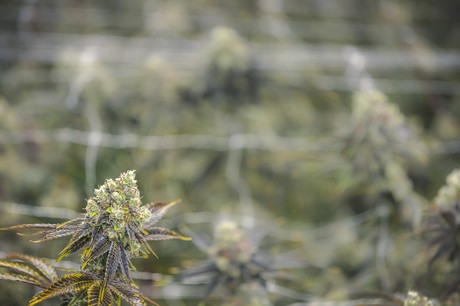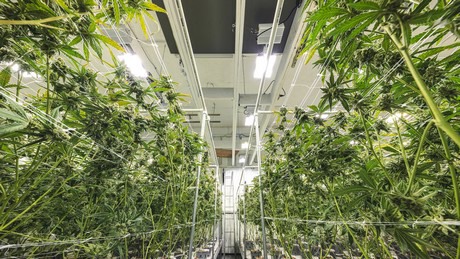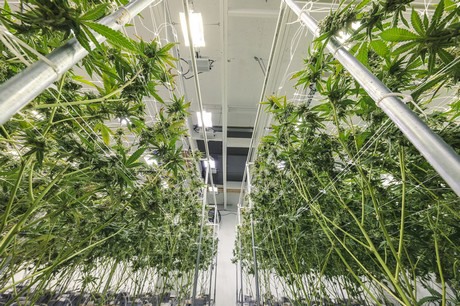Plummeting stock values. Revolving doors of executives. Producers closing facilities or filing for creditor protection. We read about one of these, if not all of them, seemingly on a daily basis. What is causing the crash of the Green Rush?
“After 15 years in the industry and firsthand visits to dozens of facilities, combined with thousands of hours at trade shows, seminars and meetings, the answers are obvious. Education, Experts, and Ego,” Ron Berkhout, founding partner of Inhuis Contrived, explains. “All of these are coming together. Unfortunately, in most cases, not in a positive way.”

The need for knowledge
There is still a significant necessity for education in the cannabis industry. The need comes from both outside of the businesses, meaning the public, but more substantially, from within. “Archaic methods and technology that lead to a high cost of operation and a lack of internal structure are the two dominant factors that have led to the demise of many cannabis operations,” he points out.
“The days of rationalizing a grow by “one light per 4’ x 4’” or “pounds per light” are long behind us. I have often asked myself, given that many light fixtures have a rectangular reflector, how do you get a square illuminance pattern from a rectangular reflector? “

A high-quality finished product is every grower’s end goal. However, the approach can not be “pounds per light”, more so, “how much did the grow room cost, and how much revenue is it producing”?
“It is common knowledge that if you want to build a house that lasts for generations, you must have a strong foundation,” Ron remarks. “In the cannabis industry, this foundation is found at the top. The management teams.”
Money is not all that's needed
At the beginning of the Green Rush, many producers were founded by executives that brought the money to the table. “That, however, is all they brought,” he says. “They invested millions of dollars, mostly into branding and marketing, which is necessary, but either left little to the actual growing requirements or over invested in the wrong equipment, personnel, and practices.”
“The best executive is the one who has sense enough to pick good people to do what they want done, and self-restraint to keep from meddling with them while they do it. Kudos to those executives that made their fortune in our industry. Sadly, most of them are no longer involved and left a trail of disaster in their wake because they could not pick the right people. Who are the right people? Are there true experts in the cannabis world? Of course, there are. Producers must find them.”
Defining an expert
“Experts or “Consultants” have surfaced just as quickly as groups that want to build a cannabis facility. Many of them are former or current growers. Many of us have worked for companies that sold products to growers.” The question is, what makes someone an expert?
“Many people and companies have long standing careers within a certain demographic of growing. It could be lighting, irrigation, climate controls, or any other product that is needed for a successful facility. They bring a wealth of knowledge and experience. For some of us, it has been the only career we know. These are the people and companies that you want to deal with. They know the right questions to ask and their focus is to set your company up to be successful. Yes, they may be more expensive than a new fledgling company trying to make their way, but it must be known that if you think hiring an expert is expensive, try hiring an amateur,” Ron says.

“The telltale sign of a true expert, or consultant, is the one that has the humility to tell clients that they do not have an answer to a question but know someone who does. Far too often consultants attempt to push their way through topics and scenarios that they do not have a firm grasp on. Instead of being direct with clients and admitting they do not know, they will stick handle around, over, and beside the answer, usually leaving the client with a false sense of security and, ultimately if they buy in to the consultant’s responses, a failed crop growing cycle.”
By no means is this a one-way failure though. “Ego extends beyond consultants. It is visible throughout the industry. Most notably, and more times than can be counted, it rests with growers,” Ron observes.
“While there are definitely excellent growers that can be found, the majority of “Master Growers” are groups of twenty-somethings that grew a couple of plants in their basement and now try to replicate a fifty square foot grow-op in a 50,000 or more square foot facility. They are given the keys to a multimillion-dollar kingdom, many times without reproach, and quickly turn it into a despot of failure.”
“Resources are available to these elevated home gardeners, but their pride, together with a lack of knowledge, prevents them from reaching out for help. Darwin said it best. “It is not the strongest of species that survive, nor the most intelligent that survives. It is the one most adaptable to change.”
Education and evolution, together with the mindset of shared success, are keys to the prolonging and survival of the cannabis industry.
For more information:
Inhuis
289-668-6644
inhuis.ca
